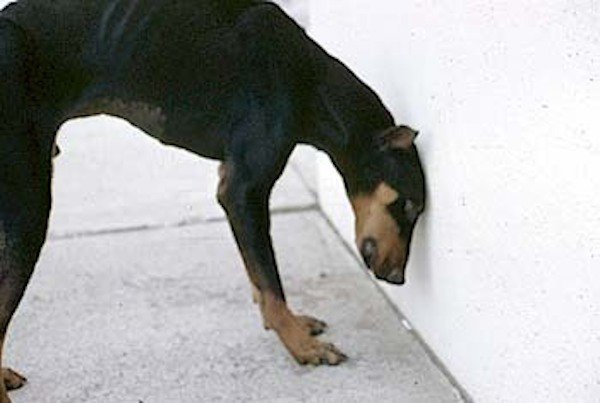On the off chance that you see your puppy or feline squeezing their heads against a divider, floor or other item for no evident reason, your pet could have a hazardous ailment. The conduct is designated “head squeezing”, and it is portrayed by the urgent demonstration of squeezing the head against something strong for expanded timeframes. The activity can be mistaken for a creature showing uneasiness or stress, yet it is a potential sign that they are debilitated and need to go to a veterinarian for assessment.
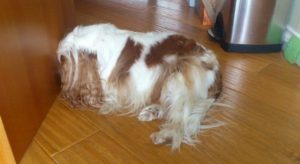
Head pressing generally indicates damage to the nervous system or a neurological condition or illness and it is very important that you take your dog or cat to a veterinarian for diagnosis.
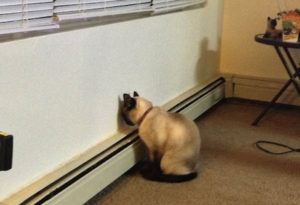
The causes of head pressing behavior can be varied, but may include: • prosencephalon disease (in which the forebrain and thalamus parts of the brain are damaged)• tumors (e.g. brain or skull)• liver shunt• toxic poisoning (e.g. lead poisoning)• metabolic disorder, such as hyper or hyponatremia (too much, or too little sodium in the body’s blood plasma)• stroke• encephalitis (inflammation of the brain and spinal cord. Many things can cause encephalitis. Infectious causes include bacteria, viruses, parasites, fungi and tick-transmitted disease).• hepatic encephalopathy (metabolic disorder as result of liver disease)• infection of the nervous system (rabies, parasites, bacterial, viral or fungal infection)• head trauma
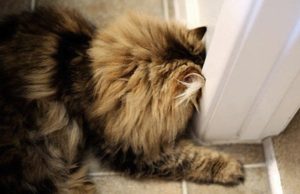
Head pressing should not be confused with normal behaviors like a dog or cat affectionately “head butting” a person.
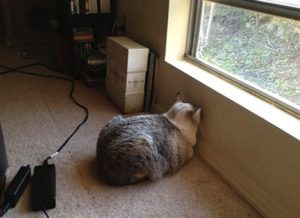
Head pressing can be just one symptom among other behaviors and symptoms of neurological problems.
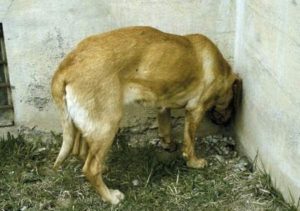
Other behaviors and symptoms can include: • constant pacing• walking in circles• face rubbing (pushing head into ground)• getting stuck in corners• staring at walls• damaged reflexes• visual problems• seizures
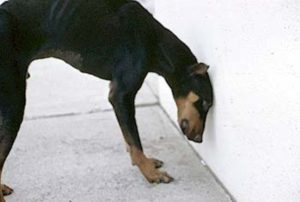
By recognizing head pressing and other neurologically-related symptoms in your dog or cat, you could potentially save their lives.
